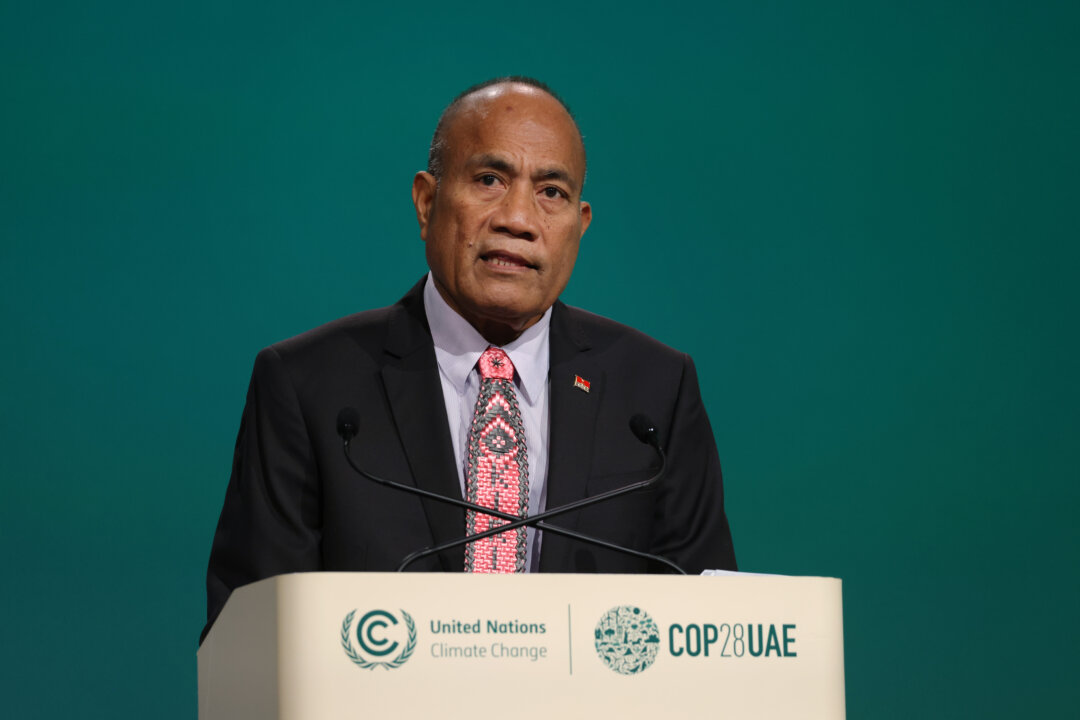‘Kiribati does not welcome China’s recent ICBM test,’ the island nation’s Presidential Office said.
The central Pacific island nation of Kiribati has criticized China over last month’s test firing of an intercontinental missile, saying that it “does not welcome” Beijing’s action.
China test-fired an intercontinental ballistic missile (ICBM) into the Pacific Ocean on Sept. 25, a move that has drawn concerns from the governments of Australia, New Zealand, Fiji, Japan, and Taiwan.
The Kiribati President’s Office said in an Oct. 5 statement on Facebook that Kiribati did not receive a notice from China before the missile test.
“Kiribati does not welcome China’s recent ICBM test, including other countries that had tested similar weapons in the recent past,” the statement reads.
“The high seas in the Pacific are not isolated pockets of oceans, they are part of our Blue Pacific Continent and are parts of Kiribati and therefore we appeal to all countries involved in weapon testing to stop these acts to maintain world peace and stability.”
The Pacific Islands Forum—a regional bloc of 18 members including Kiribati, Palau, Papua New Guinea, Solomon Islands, Tonga, Tuvalu, and Vanuatu—declared its combined maritime zone, known as the Blue Pacific Continent, nuclear-free decades ago after signing a treaty.
Kiribati, located about 1,300 miles southwest of Hawaii, has a population of about 115,000 and is one of the world’s biggest exclusive economic zones, covering an area of more than 1.35 million square miles of the Pacific.
Kiribati developed a close relationship with China’s communist regime in recent years after it severed diplomatic ties with Taipei in favor of Beijing in September 2019.
In February, Kiribati’s ties with China came under scrutiny, when the nation’s acting police commissioner Eeri Aritiera said Chinese police officers had been working with local police in the country.
In response, a spokesperson for the U.S. State Department said at the time: “We do not believe importing security forces from the PRC will help any Pacific Island country. Instead, doing so risks fueling regional and international tensions,” referring to communist China’s official name, the People Republic of China.
“We are concerned about the potential implications security agreements and security-related cyber cooperation with the PRC may have for any Pacific Island nation’s autonomy,” the spokesperson added.
Sen. Brian Schatz (D-Hawaii) also responded to China’s police presence in Kiribati in February.
“Reports of China’s growing influence across Pacific Island nations, including Kiribati, underscore the need for the United States to continue strengthening our partnerships in the region,” Schatz said in a statement at the time.
“To build enduring trust with the people of the Pacific Islands, we need to redouble our efforts to support economic development, help meet infrastructure needs, bolster public health capacity, and more.”
The Pacific nation of the Solomon Islands signed a security agreement with China in 2022. In the following year, the two sides inked another deal on police cooperation as part of an upgrade of their bilateral ties.
President Joe Biden signed the Compact of Free Association agreements into law in March, providing $7.1 billion in funding for the freely associated states—Marshall Islands, Palau, and the Federated States of Micronesia.
Schatz said in the statement on Kiribati in February that enacting it would be “an important step in demonstrating the United States’ continued commitment to a free and open Indo-Pacific.”
Kiribati will hold a direct vote for president on Oct. 25. Four candidates from the ruling Tobwaan Kiribati Party, including incumbent Taneti Maamau, are vying for the seat.
Opposition leader Tessie Lambourne has criticized Maamau’s close ties to China and the absence of any opposition candidates for president.
Lambourne was Kiribati’s ambassador to Taiwan before Kiribati switched diplomatic recognition to China.
Reuters contributed to this report.

